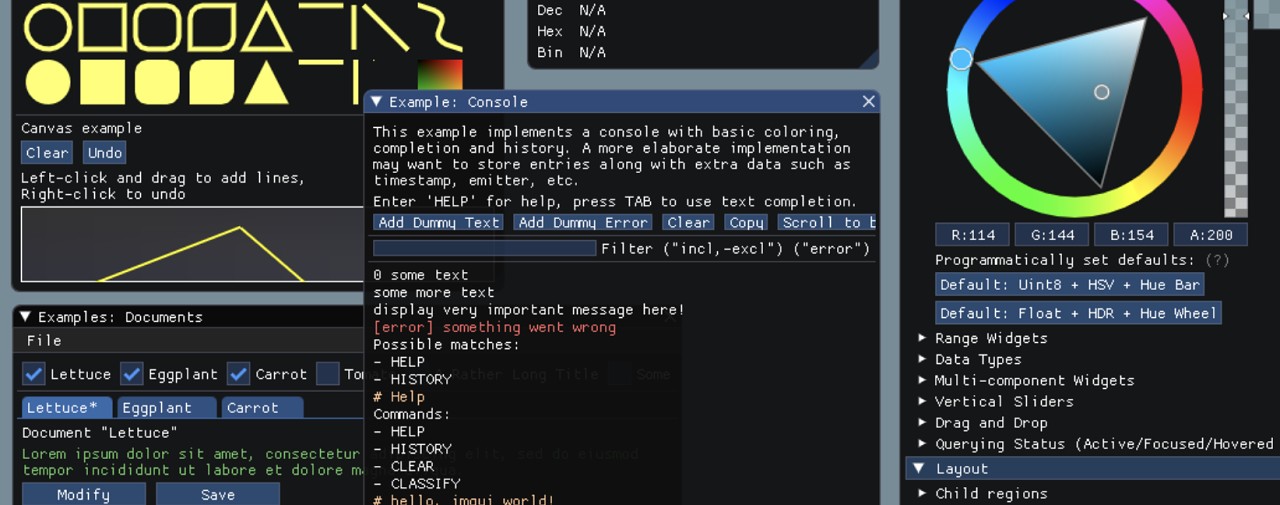|
👋 Welcome to the final Golang Weekly of 2020! This was meant to be a 2020 roundup issue but there have been a few bits of news to cover so we're leading with those before taking a look back. Thanks for all of your support and submissions over the year, and we look forward to getting back to things in January :-) |
#343 — December 18, 2020 |
Golang Weekly |

|
|
Go on ARM.. and Beyond! — ARM-based systems have been growing in popularity over the past few years and Apple’s M1 chip has suddenly upped the importance of supporting the architecture in more ways (Docker mentioned a lack of stable-version Go support for the M1 as one of its engineering challenges in delivering Docker for M1-based Macs). Russ Cox |
Mentioned above, but Go 1.16 beta 1 is available now. The final version is expected next February. |

Remote Instructor-Led Go, Docker, Kubernetes, Terraform, & Python Training — We offer live-streaming remote training sessions for individual engineers and companies that want to augment their knowledge in Go, Docker, Kubernetes, Terraform, and Python. We’ve trained over 10,000 engineers via our carefully crafted classes. Ardan Labs sponsor |
|
Redirecting Julie Qiu |
|
Ebiten in 2020 — Ebiten is a popular open source game library for building 2D games in Go. I’m always happy to promote it as it’s both a neat bit of work and seems surrounded by such happiness and activity. Hajime Hoshi |
The most clicked Golang Weekly items of 2020 |
|
1. An Interview with Go's Rob Pike — Go’s co-creator answered some big picture questions about Go’s status, history, and future. Evrone |
|
“Go changed the conversation around how to program multicore computers.” ___ |
|
2. Go Standard Library Benchmarks: Intel vs Apple's M1 — We've spoken about Go on M1 (above) but you were all very keen to see some initial benchmarks.. :-) As with all benchmarks, though, maintain a critical eye here, especially as this is against an older i5 CPU. Roland Shoemaker |
|
3. Insights on Rust vs Go — John is a huge Go fan and has done a lot of work in the Go space, but he thinks both Rust and Go are awesome and takes a careful look at where Go and Rust each independently make the most sense. We wouldn't usually strongly feature a 'versus' type post, but several people from the Go and Rust spaces reviewed this piece for quality and fairness. John Arundel |
|
|
4. Inlined Defers in Go — An optimization in 1.14 and later for simple use cases with Jaana B. Dogan |
|
5. Different Approaches to HTTP Routing in Go — “There are many ways to do HTTP path routing in Go – for better or worse.” And Ben took a nice tour through a variety of options here. Ben Hoyt |
|
6. I Want Off Mr. Golang's Wild Ride — Well, not everyone loves Go. This is a very detailed rant(?) that goes beyond generics and takes issue with the idea that Go is simple. Worth a read, as things like this can help us flesh out our own opinions and figure out just why we do love Go. Amos Wenger |
|
|
|
Most clicked Go tools and projects of 2020 |

|
|
Giu: A Cross Platform Rapid GUI Framework Based on Dear ImGui — Another way to create simple GUI apps from Go. Dear ImGui is an interesting GUI library (for C++) aimed at creating quite idiosyncratic UIs aimed at power users rather than standard end-user UIs. I like the minimalist vibe. Allen Dang |
|
Errors: Go Errors, But With Network Portability — A drop-in replacement for the standard CockroachDB |
|
RobotGo: Native Cross-Platform GUI Automation — We’ve linked this a few times over the years but this year it had a huge update. Control the pointer, keyboard, read the screen, etc.. you could use this to automate many computer-based jobs with enough creativity 😁 V Caesar et al. |
|
|
Fyne: Cross Platform GUI Toolkit and API — We first linked this when it was for desktop only but it supports Android and iOS now too. It claims to be inspired by Material Design but looks more generally Linux-y to me. A clean look either way though. Fyne.io |
|
Bubble Tea: A Powerful Elm-Inspired TUI Framework — Based on the Elm architecture, this is aimed at interactive terminal applications. There’s also Bubbles which provides a few components (spinner, text input, paginator, viewport) to use in Bubble Tea apps. Charm |
💻 Jobs |
|
Join the AWS Lambda Team (Seattle, Washington) — We're looking for gophers who enjoy teamwork, global scale services, and building the next generation of AWS Lambda. #serverless Amazon |
|
Golang Developer at X-Team (Remote) — Join the most energizing community for developers and work on projects for Riot Games, FOX, Sony, Coinbase, and more. X-Team |
|
Find a Job Through Vettery — Create a profile on Vettery to connect with hiring managers at startups and Fortune 500 companies. It's free for job-seekers. Vettery |